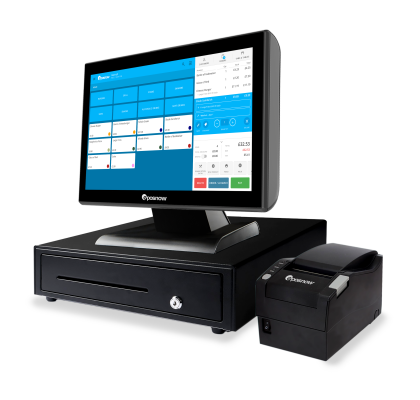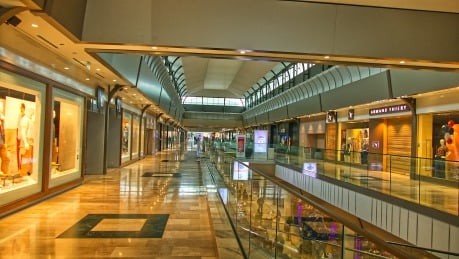Why Are Shopping Malls Dying, and How Can They Make a Comeback?
When talking about shopping malls - descriptions like big, bustling, and full of life spring to mind. However, in recent years, this image has started to change. Now, 'dead malls' are becoming more and more common, as traditional retail struggles to keep up with the ever-growing demands of online shopping.
What are the characteristics of a shopping mall?
A shopping mall is typically a large, commercial building that is home to a variety of different stores and businesses. In the past, malls were seen as a convenient one-stop shop for all your consumer needs, and they quickly became popular social hubs where people would meet up with friends or go on dates.
So if that's true...
What is the reason shopping malls are dying?
There are in fact a number of reasons that have contributed to this decline. Here are five of the most prevalent.
The rise of online shopping
It's no secret that online shopping is becoming increasingly popular, and this is definitely one of the key reasons why shopping malls are dying. More and more people are opting to do their shopping from the comfort of their own homes, and with such a wide range of products available online, it's not hard to see why.
High maintenance costs
As shopping malls become increasingly empty, the cost of maintaining them becomes higher and higher. With fewer people visiting malls, there's less money to be made from things like rent and food court sales, and this means that mall owners are struggling to keep up with the costs of running their businesses.
Fast fashion
Shopping habits have changed a lot in recent years, and malls have struggled to keep up with changing tastes and trends. Fast fashion is one such trend, and the rise in its popularity means that people are now more likely to buy their clothes from cheaper, more trend-focused online retailers rather than from traditional department stores.
People are less likely to spend money on expensive items that will go out of style quickly and especially post-pandemic, this has meant that people are generally more careful with their money, and are less likely to splurge on unnecessary items.
Looking for a cloud-based management tool that's at the centre of your business?
Epos Now solutions provide state of the art retail technologies, syncing with integrations to boost local inventory advertising, loyalty programs, email and SMS customer mailing and more.
Epos Now can help you boost your retail or hospitality business from one, cloud-based system regardless of your business size.

There's a decrease in foot traffic
One of the most obvious signs that shopping malls are dying is the fact that there are fewer people visiting them - less foot traffic. This decline in malls' ability to retain their customers, could be for a number of reasons, including the fact that there are now more options for shopping and entertainment, or simply because people don't see malls as being as social or fun as they used to be.
If you run a retail business, you can reduce the risk of falling foot traffic using automated business apps like NearSt. With NearSt, not only can you show your products on the platforms your customers already use and access insights into what close-by customers are searching for, but you can also display your personal inventory on the web's most viewed sites such as Google Marketplace.
You can easily integrate your Epos Now retail point of sale system with NearSt through the AppStore, so there's no reason not to start investing in your inventory.
Outdated mall model
Another factor that has contributed to the decline of shopping malls is the fact that they are becoming increasingly outdated. With the rise of newer, more modern retail spaces like outlet villages and pop-up shops, malls are starting to look a little bit old-fashioned in comparison.
 There's an increase in vacant store locations
There's an increase in vacant store locations
Another sign that shopping malls are dying is the increasing number of vacant stores.
Abandoned malls tend to materialize in the wake of traditional retailers that are struggling to compete with online businesses being forced to close their mall locations.
This then has a knock-on effect, as the presence of vacant stores makes malls less appealing to customers, and so the ‘dead mall’ cycle continues.
Could shopping malls make a comeback?
It's possible that shopping malls could make a comeback. However, improving the chances of a shopping mall regeneration would require a major change in the way they operate, for example, successful malls could:
- Become more experience-based, rather than just being places to buy things, e.g. by adding more entertainment options, or by becoming more family-friendly.
- Focus on niche markets, e.g. by becoming destination malls for a certain type of shopping, such as sports equipment, or electronic goods. Vegan or sustainable fashion, or offering more unique and specialized products that you can't find easily online, are also good examples.
- Become more community-focused by hosting regular events, or offering services that cater to the needs of the local area.
- Make themselves more appealing to younger generations by incorporating more technology, or by offering things like co-working spaces and event spaces.
Ultimately, it's hard to say whether or not shopping malls will make a comeback. However, what is certain is that the way we shop has changed dramatically in recent years, and it's likely that this trend will continue in the future.
It's also worth noting that, while malls may be on the decline in some parts of the world, they're still going strong in others. For example, malls and shopping centers are still extremely popular in the United States and Asia, with the world's largest mall being in Dubai. So, it's possible that shopping malls could make a comeback in some parts of the world, even if they continue to decline in others.
Keep business alive with an award-winning POS system
Customer retention is the key to any successful business, but in such times of uncertainty, it can be difficult to capture your customers and keep business alive. Let your point of sale system handle things like sales trends, marketing messages, and loyalty programs, so you can spend time focusing on the customers at the core of your business. Epos Now offers state-of-the-art POS systems for both hospitality and retail businesses and let you choose the tools and insights to help your business achieve its goals:
- Access detailed analytics and reports on online engagement, foot traffic, sales and trending products or services.
- Connect with market-leading CRM and loyalty apps through the Epos Now App Store.
- Access multi-award-winning inventory management systems that sync online sales and in-person sales for the most up-to-date stock levels.
- Save customer contact details and shopping preferences for targeted marketing.
If you're still shopping around for retail saving tips, we'd love to hear from you!




